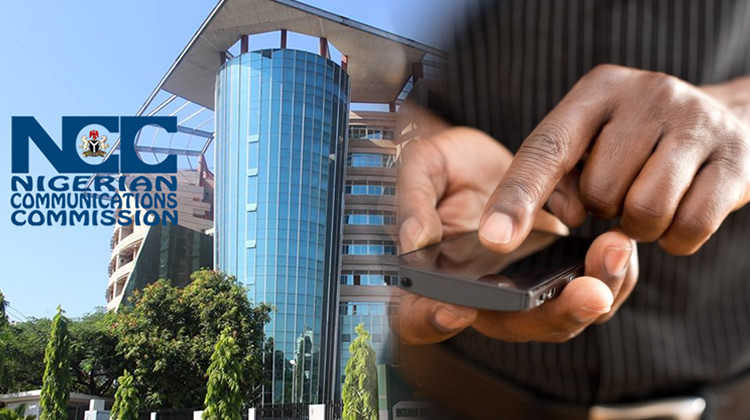NCC Opens 6GHz Spectrum to Address Nigeria’s Network Congestion and Outages
The Nigerian Communications Commission (NCC) is taking a major step to combat the country’s chronic network congestion and outages by making the six-gigahertz (GHz) spectrum band available to network providers. The initiative, announced during the Stakeholders’ Consultative Forum on Emerging Technologies, is expected to significantly improve the quality of service for millions of users, while addressing infrastructure challenges in fiber deployment.
Tackling Network Outages and Fiber Cuts
Nigeria’s telecom sector faces serious challenges, with over 1,600 fiber cuts and 500 network outages reported monthly. These disruptions have a direct impact on over 83 million users annually. The country’s slow progress in deploying fiber-optic networks, despite the telecom revolution that began 23 years ago, exacerbates these issues.
To tackle this problem, the NCC is turning to long-haul microwave links as a backup for fiber cuts. Additionally, the 6GHz spectrum will be opened up for Wi-Fi 6 applications and International Mobile Telecommunications (IMT), offering a solution for relieving network congestion, particularly in urban areas.

Expanding Wi-Fi Capacity with the 6GHz Band
Atiku Lawal, the acting head of spectrum administration at NCC, highlighted that the airwaves in the 2.4GHz and 5GHz bands are overcrowded, limiting the potential of Wi-Fi services. This overcrowding has led more than 70 countries to consider opening the 6GHz spectrum for unlicensed use. By adding this spectrum, Nigeria joins a growing list of countries aiming to boost network capacity.
“Capacity in the unlicensed use of the 6GHz band for Wi-Fi will improve Quality of Service (QoS) through Wi-Fi 6 offload… this will help relieve networks of capacity constraints,” Lawal explained.
The 6GHz spectrum offers multi-gigabit speeds, translating to faster internet and more reliable service. These improvements are especially crucial as Nigeria strives to meet the increasing demand for high-speed internet services.
A Crucial Move for High-Speed Internet and Connectivity
The decision to open the 6GHz band, which spans from 5925 MHz to 7125 MHz, is part of the global shift to enhance wireless internet capabilities. Aminu Maida, executive vice chairman of the NCC, noted that this spectrum allocation is vital for addressing the rising demand for high-speed connectivity.
“Wi-Fi plays a crucial role in the distribution of fixed broadband connectivity in homes, offices, and various other environments,” Maida added.
The additional spectrum will help increase wireless capacity, reduce network congestion, and improve internet access, particularly in underserved areas. This could be a game-changer for rural communities, which have historically struggled with slow and unreliable internet.
Industry Leaders Support the 6GHz Band Initiative
SEE ALSO: NCC Launches Device Management System to Regulate Mobile Phones Nationwide
Industry leaders have expressed optimism about the potential of the 6GHz band to drive growth in Nigeria’s telecommunications sector. Tony Emoekpere, president of the Association of Telecommunications Companies of Nigeria (ATCON), described it as a critical asset for the future of telecommunications, especially as the demand for high-speed connectivity continues to grow.
“One of the most exciting promises of Wi-Fi 6 and IMT deployment is its potential to bring high-speed, low-latency internet to underserved and rural areas,” Emoekpere said.
However, he also cautioned that deploying services on this spectrum will require substantial investment in infrastructure upgrades, including mobile networks and Wi-Fi equipment.
Financial and Infrastructure Challenges for Telecom Operators
The deployment of 6GHz technology is expected to face significant financial and operational hurdles. Caroline Alenoghena, a professor of Telecommunications Engineering at the Federal University of Technology, Minna, noted that the implementation of 6GHz would necessitate upgrading base stations, installing new antennas, and deploying additional fiber optic cables.
Telecom operators in Nigeria are already grappling with economic difficulties that have negatively impacted their profitability. In the past 18 months, many operators have reported declining returns on capital, with investments in network infrastructure stalling as a result. Karl Toriola, CEO of MTN Nigeria, recently warned of a potential investment crisis in the sector, stating:
“No one will put in a dollar and continue to get 66 cents… We are in a big crisis.”
In 2023, both Airtel Africa and MTN Nigeria experienced significant foreign exchange losses, amounting to N1.29 trillion. MTN also posted its first loss—N137 billion—since being listed on the Nigerian Stock Exchange in 2019.
The Need for Infrastructure Investment and Policy Reform
According to Gbolahan Awonuga, executive secretary of the Association of Licensed Telecoms Operators of Nigeria (ALTON), substantial investment is needed to upgrade the infrastructure necessary for leveraging the 6GHz band. However, current economic conditions pose a challenge to securing the funds required to import equipment and expand network capacity.
“We need money to upgrade our infrastructure and import equipment so as to benefit from the 6GHz. Our members are struggling to expand their infrastructure,” Awonuga stated.
To address these issues, industry experts are calling for public-private partnerships, reductions in Right of Way (RoW) charges, and streamlined regulatory processes to facilitate infrastructure expansion. Supporting local Internet Service Providers (ISPs)—especially smaller players who may lack the financial resources to compete for high-cost licensed spectrum—will also be crucial in expanding broadband penetration.
Conclusion: Bridging the Digital Divide with 6GHz Spectrum
As Nigeria prepares to deploy the 6GHz spectrum, the initiative holds the promise of delivering high-speed, low-latency internet to underserved regions, including rural areas. However, overcoming financial and infrastructural challenges will require coordinated efforts between the public and private sectors. With the right investments and policies, the 6GHz spectrum could play a pivotal role in closing the digital divide and transforming Nigeria’s telecommunications landscape for years to come.



